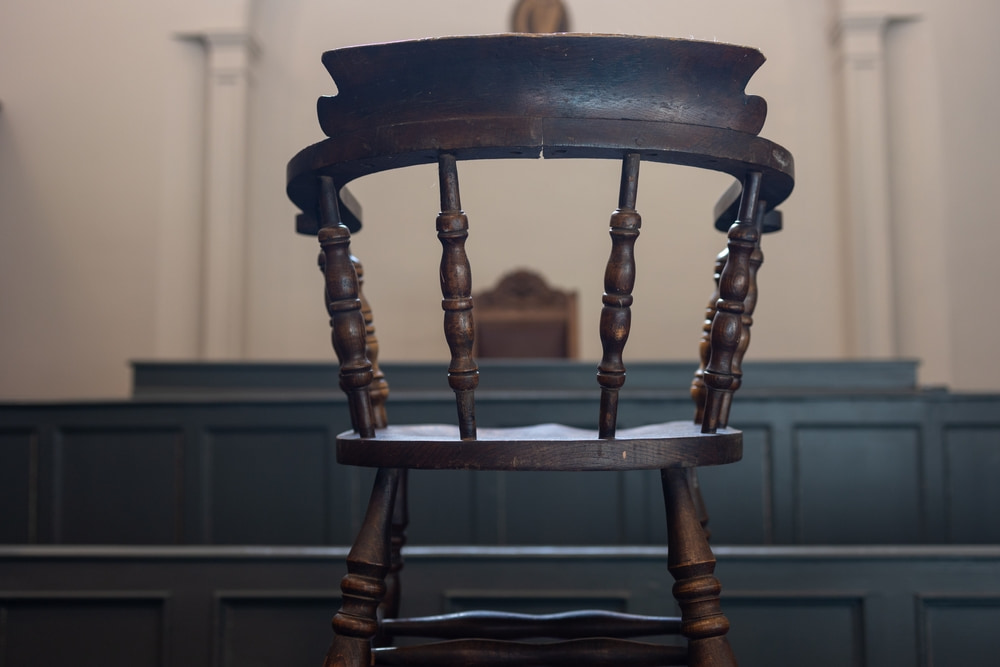What is Indictment?

What is Indictment?
An indictment is a formal accusation that initiates a criminal case, charging an individual with committing a specific crime. This process is typically used in the context of serious crimes, especially at the federal level.
The Fifth Amendment to the U.S. Constitution dictates that major offenses – capital or otherwise infamous crimes – can only be brought about if introduced by an indictment from a grand jury consisting of citizens who review evidence presented by prosecutors on behalf of the government.
However, this protection is not always extended in state courts because they are governed by their own respective constitutions and laws, so procedures vary widely across different states.
To fully understand and protect your rights, continue reading and learn how a criminal defense attorney from The Rodriguez Law Group Los Angeles Criminal Defense Attorneys can help you navigate these legal challenges.
Quick Navigation Menu
California Sometimes Uses Indictments for State Felony Charges
Indictments in California are less common than in federal court, but they do sometimes occur when an individual is charged with a felony.
Here’s how it works:
Initial Investigation
A crime gets reported, and the police respond, gathering evidence and compiling it into an investigative report. They may arrest someone if there’s probable cause to believe the individual has committed a crime.
Grand Jury Proceedings
The District Attorney’s office then convenes a grand jury made up of private citizens for closed proceedings to review the collected evidence. The prosecutor presents their case, which includes presenting evidence and calling witnesses under oath for questioning.
Decision Process
 Upon completion of hearing all pieces of evidence presented, the grand jury votes. If a certain number of jurors (this changes depending on the county) decide the indictment is warranted – meaning there’s enough evidence to charge someone with a crime – they issue what’s known as a “true bill.”
Upon completion of hearing all pieces of evidence presented, the grand jury votes. If a certain number of jurors (this changes depending on the county) decide the indictment is warranted – meaning there’s enough evidence to charge someone with a crime – they issue what’s known as a “true bill.”
Rights of the Accused
The defendant doesn’t attend these proceedings, nor are they allowed to cross-examine witnesses or present their own defense at this stage. However, if there is exculpatory evidence – evidence showing that you could be innocent – the prosecutor is required to present it.
Eliminating the Preliminary Hearing
With an indictment issued by the grand jury, California criminal cases can proceed straight to trial without needing to go through a preliminary hearing, which is how felony charges in California proceed if an indictment isn’t sought (misdemeanors do not go through indictment or preliminary hearings).
Anyone facing a potential indictment should seek help from an experienced criminal defense lawyer right away.
Presumption of Innocence After an Indictment
It’s important to remember that an indictment doesn’t imply guilt – it simply starts formal legal proceedings based on existing evidence. It’s at trial that your guilt will be evaluated thoroughly and must be proven beyond a reasonable doubt.
Why Would a State Prosecutor Convene a Grand Jury?
As a suspect, you might wonder why state prosecutors would utilize a grand jury instead of holding a preliminary hearing. The reasoning is multi-layered.
Gauge a Jury’s Reaction
The indictment process provides a preliminary platform for prosecutors to measure potential juror responses to the given evidence. If an indictment is achieved, it is seen as a positive marker that they could also win at trial. Essentially, this procedure offers an essential pre-trial avenue for prosecutors to evaluate their available evidence.
Confidentiality
 Additionally, grand juries allow for confidentiality in the indictment process. With a grand jury, related proceedings can occur privately, which helps ensure that information about the case isn’t prematurely disseminated into public view.
Additionally, grand juries allow for confidentiality in the indictment process. With a grand jury, related proceedings can occur privately, which helps ensure that information about the case isn’t prematurely disseminated into public view.
In the state’s mind, this prevents the defendant from hiding or destroying evidence. It gives the prosecutor the element of surprise, which can be an advantage.
Protection of Witnesses
The protection of witnesses is another crucial reason. Witness testimony is often essential for the prosecution’s case, and some may be unwilling to testify in public before the trial begins. In a grand jury proceeding, testimony remains anonymous and protected.
Grand Juries Lean Toward Indictment
Finally, it’s said that grand juries often lean towards indicting, so it’s seen as a prosecutor-friendly way to get charges to stick; the fact that defense attorneys aren’t present during this process means evidence is uncontested.
How a Los Angeles Criminal Defense Lawyer Can Help if You Get Indicted
Getting indicted by a grand jury can be an overwhelming experience, and having a qualified legal representative by your side is crucial. Here’s how a lawyer can help you navigate these circumstances:
Explain the Process and Your Rights
An experienced attorney can explain the process to you, making sure you understand each step as well as your rights during this period.
Evaluate Evidence
They will review the evidence against you, examining its credibility and strength while searching for any holes in the prosecutor’s case that may provide grounds for dismissal or acquittal.
Prepare Your Defense
A key aspect of your lawyer’s role is to devise a solid defense strategy. This can include questioning the prosecution’s narrative and presenting evidence that challenges the state’s version of events, like an alibi witness or video footage.
In some cases, this might include negotiating a plea deal with the prosecutor.
Represent You at Trial
If your case proceeds to trial, an experienced lawyer prepares and presents strong arguments in favor of your innocence while cross-examining state witnesses effectively to highlight inconsistencies in their testimony.
Contact a Respected Los Angeles Criminal Defense Attorney
As you can see, having an attorney by your side if you’re indicted can significantly impact the course of your case. If you need help with a possible indictment or related matter The Rodriguez Law Group Los Angeles Criminal Defense Attorneys can help. Contact us today.

CONTACT A CRIMINAL DEFENSE ATTORNEY
Facing criminal charges in Los Angeles? Trust The Rodriguez Law Group Los Angeles Criminal Defense Attorneys to secure the best possible outcome. Our experienced criminal defense lawyers have 20+ years of expertise in handling criminal cases.


